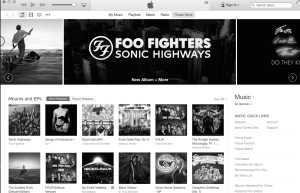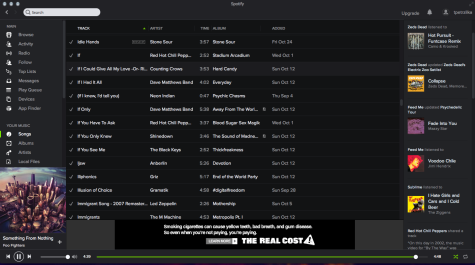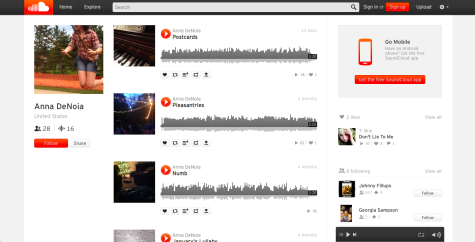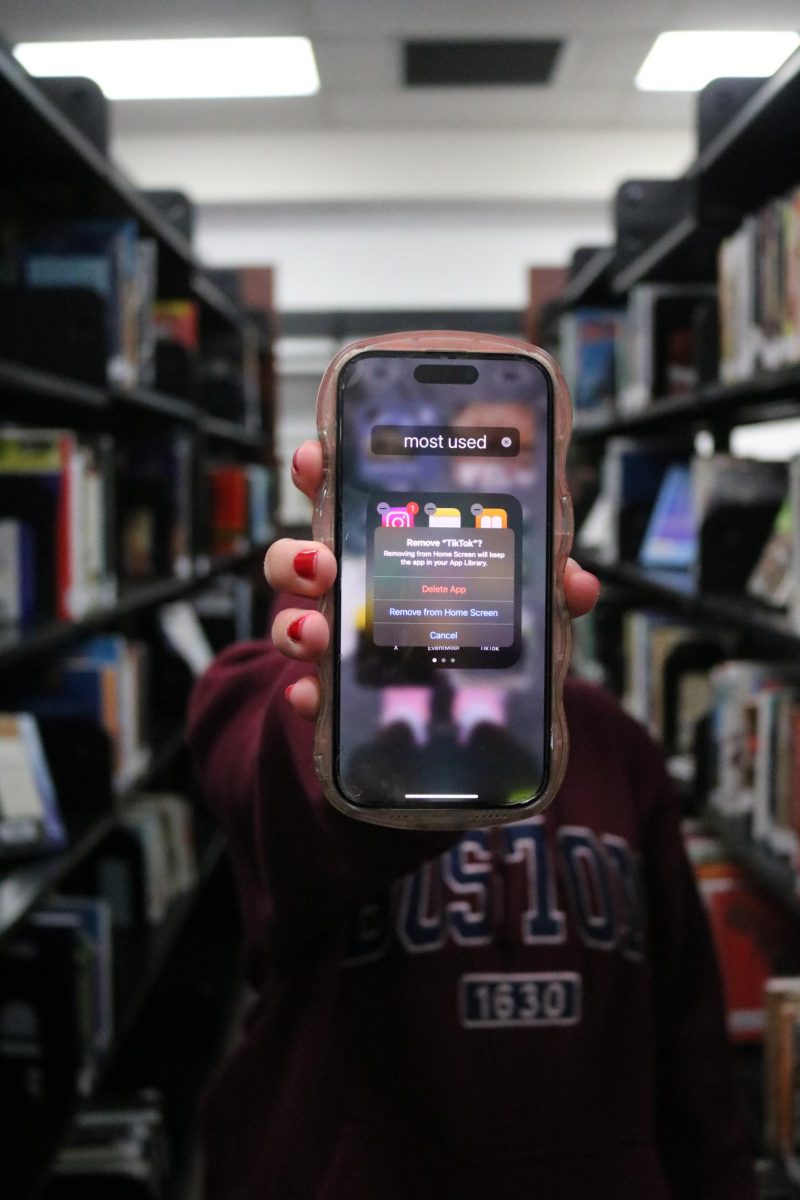
Over the course of 2014, iTunes has seen a significant decline in sales, as many consumers are resorting to cheaper new options, including free radio options and the popular streaming sites Spotify and Soundcloud, two websites that offer the sharing or streaming of free music or a pay-by-month option with unlimited access to music or other features.
From the start of the year, iTunes music sales have dropped around 13 to 14 percent while online streaming websites have seen an increased revenue of 28 percent, according to the Recording Industry Association of America.
In 2001, the revolutionary development of iTunes allowed people to access music instantly, choose any song they wanted to play, create playlists with their favorite tunes, and more importantly, share them instantly with others on the go.
For years, iTunes has ruled and shaped the music industry, shattering the sales of compact discs, better known as CDs. This success, within the last few years especially, allowed iTunes to raise the price per song from $0.99 to $1.29 for more popular tracks, something they knew they could get away with due to their obvious support.
However, as technology has advanced and ideas are easier to spread more than ever before, it is expected for new ways of listening and sharing music to develop and catch on to the masses.
The more recent growth of online streaming could be due to the fact that the music is free, a quality, especially in this day and age, that is desirable.
During any day at LHS, students throughout the building are listening to music, whether it be during study hall or just during passing periods, through various sites or apps.
For a while, the popular options available to access music without having to pay for iTunes were illegally downloading music and the radio, which can be, respectively, hazardous to computers, as they may contain viruses or inconvenient because most standard radio stations only play the most popular music.
Sophomore Kristine Chi expressed why she chooses to illegally download music.
“I use [illegal music sharing websites] because there’s no point in paying for music when you can get it for free, even if you have to go the extra effort and download it,” she said.
Chi later explained that while she has not experienced any viruses so far, these websites can be difficult to navigate and the sound quality of the music downloaded is not always great, and she revealed that she also uses Spotify.
“I use Spotify daily and I really like it because it opens you up to music (that’s in your genre) that isn’t necessarily the most popular,” Chi said.
Therefore the answer to why these new options are becoming more popular is simple: they’re affordable, easy to access, legal, include most of the relevant music, and in some cases, include other features that iTunes lacks.
By just the touch of a button and internet connection, of course, users of online streaming sites have immediate access to music. Junior Frankie Saliba likes the convenience of Spotify in particular.
“It’s easy just to hop in my car and press play and listen to all my favorite songs. It’s also very organized and personalized,” he said.
In the case of Spotify, users can play any song they want wherever they are, whether on tablets or computers. However, on smartphones, the user can only shuffle-play music.
Spotify, SoundCloud, and radio-based sites like Pandora, all offer add-on features to enhance the user’s access and experience with the sites as well as the music itself.
With a fee of just under $10 per month, Spotify becomes cheaper than iTunes in relation the the price per song, which can be compared to the simple pay-by-month idea behind the notorious Netflix, which has arguably become a form of replacement for cable TV.
With this feature, the user gets unlimited skips, meaning songs can be skipped at any time; with the free version, the user can only skip a certain amount of songs within a time period. To conclude, ads are eliminated, music can be listened to without any internet connection, and any song can be played at any time.
“I believe that people are willing to pay for Spotify because they are paying a small price for unlimited music when iTunes charges you per song,” stated Saliba.
However, the free version has adequate features as well: The user can create their own playlists, has access to a variety of music, and has their own “library,” strikingly similar to how iTunes that organizes their music in an easy and efficient way.

Especially with a generation that has considerably opened the door to new music, where music trends are changing everyday, streaming sites can be useful, according to Saliba.
“Paying a dollar or two dollars for a song through iTunes that I will listen to less than 10-15 times isn’t worth it. I’m always into new music and different songs so Spotify is a cheap way for me to keep up with my style,” he said.
SoundCloud, on the other hand, can be seen as both a social and musical experience and as many people know, younger adults and teenagers seem to get a fix on social media.
It allows users to share music by well-known and notable artists for free but is different in the sense that it allows musicians to share their own music, whether it be covers of their favorite artists or their own original music.
SoundCloud allows aspiring musicians to easily share their music with virtually anyone; each user has their own profile that displays their uploads, followers, and other people the user follows.
Sophomore Anna DeNoia, a musician herself, uses SoundCloud and enjoys the convenience of the site in general.
“I use it to show other people songs that I’ve written since it keeps it all online and is accessible from anywhere with internet,” she said.

DeNoia reflected that she enjoys using SoundCloud to to discover her peers’ music as well.
The main benefit to paying for SoundCloud is that the user can upload more content, but as with Spotify, people still choose not to pay, as they are content with the features it already has.
“I haven’t (chosen to pay for SoundCloud), but there is limited space to save things for free, so I might end up paying later,” stated DeNoia.
One issue that the idea of free brings up is the fact that nothing perfect is really free.
As sites like YouTube have experienced growth, there have been incorporations of ads. However, Spotify and Pandora offer the option to pay by month, eliminating ads, while SoundCloud plans to do something similar in 2015, the CEO of the site, Alexander Ljung told The Wall Street Journal.
Despite the fact that some people find these ads irritating, there are more than 50 million Spotify users and among them, only 12.5 million pay, less than half of total users, according to The Wall Street Journal.
Many people accept that they have to endure an ad every so often in exchange for access to more than 20 million songs.
“I don’t mind a commercial or two every 30 minutes of listening. It’s not a deal breaker for me when it comes to choosing Spotify or not,” expressed Saliba.
Even though Apple is expected to incorporate Beats Music Streaming Service into iTunes and is known as a notable and successful company, iTunes could see an even further decline in music sales with the growing popularity, convenience, and affordability of online streaming.






